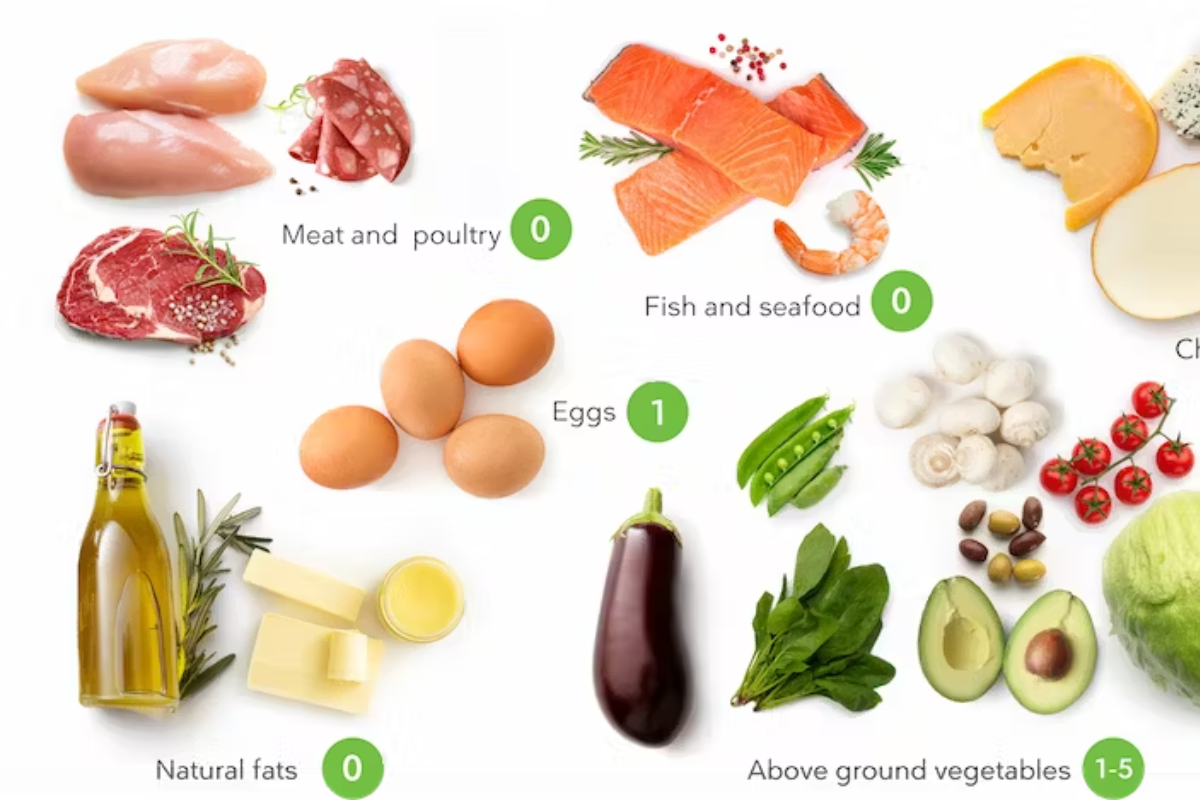In the fast-paced world of entrepreneurship, maintaining high energy levels and sharp focus is not just a necessity; it’s a prerequisite for success. As we step into 2024, the keto diet has emerged as a beacon of hope for entrepreneurs seeking to enhance their physical and cognitive performance. This high-fat, moderate-protein, and low-carbohydrate diet has gained traction not only for its weight loss benefits but also for its ability to transform fatigue into vitality.
The mechanism behind the keto diet is simple yet profound. By drastically reducing carbohydrate intake and replacing it with fat, the body is forced into a state of ketosis. In ketosis, the body becomes incredibly efficient at burning fat for energy, leading to improved energy levels and mental clarity—attributes every entrepreneur desperately needs.
However, the challenge lies in adapting this diet to fit the busy lifestyles of entrepreneurs. Time constraints, constant meetings, and the need for quick, energy-boosting meals can make strict diet adherence seem daunting. Yet, the adaptability of the keto diet allows for it to be molded to meet the demands of even the most hectic schedule, proving that with the right approach, entrepreneurs can harness the power of keto to fuel their business endeavors and personal health simultaneously.

The Basics of Keto Diet
At its core, the keto diet revolves around a metabolic state known as ketosis, where the body switches its energy source from glucose to ketones, molecules produced in the liver from fatty acids. This shift not only aids in weight loss but also enhances mental clarity and energy levels, making it particularly appealing for entrepreneurs who require both physical stamina and cognitive sharpness.
Understanding the Ketogenic Process
Ketosis is achieved through a significant reduction in carbohydrate consumption, typically to below 50 grams per day, coupled with a substantial increase in fat intake and moderate protein consumption. This alteration in diet prompts the body to become more efficient at burning fat for energy, leading to weight loss and increased energy levels.
Key Components of a Keto Diet
A successful keto diet is built on the foundation of:
- Fats: The primary energy source, including avocados, coconut oil, butter, and fatty fish.
- Proteins: Essential for muscle health, sourced from meats, eggs, and cheese, but consumed in moderation to avoid disrupting ketosis.
- Carbohydrates: Severely limited, focusing on low-carb vegetables like leafy greens, and completely avoiding sugars and starches like bread, pasta, and rice.
Understanding Macros
The balance of macronutrients (macros) is crucial in maintaining ketosis. Typically, the daily calorie intake on a keto diet consists of approximately 70-80% fat, 15-20% protein, and only 5-10% carbohydrates. Entrepreneurs venturing into the keto lifestyle must become adept at tracking these macros to ensure they remain in a state conducive to their energy and focus goals.
By grasping the basics of the keto diet, including the ketogenic process, key diet components, and the importance of macro balance, entrepreneurs can take the first step toward transforming their diet to one that supports their dynamic lifestyle and demanding career objectives.
Customizing Keto for Entrepreneurs
For entrepreneurs constantly on the move, adhering to the keto diet requires strategic planning and adaptation to fit within a busy schedule. The goal is to make the diet not just a temporary phase but a sustainable lifestyle choice that enhances energy and productivity without becoming a burden.
Strategies for Maintaining a Keto Diet with a Hectic Schedule
- Simplify Meal Prep: Dedicate a few hours each week to prepare keto-friendly meals in bulk. This approach ensures that you have quick access to high-fat, low-carb meals, even on your busiest days.
- Portable Snacks: Keep a stash of keto-friendly snacks on hand, such as nuts, seeds, cheese, and hard-boiled eggs. These can help stave off hunger and keep you energized between meetings or tasks.
- Smart Dining Out: When dining out, opt for dishes that align with the keto framework. Most restaurants offer salads, meat-based dishes, and vegetables that can be customized to fit a keto diet.
Quick and Easy Keto-Friendly Meal Ideas for Busy Entrepreneurs
- Breakfast: Avocado and egg salad with a side of spinach. It’s quick to prepare and provides a balanced mix of fats and proteins.
- Lunch: Caesar salad with chicken or salmon. Ask for extra olive oil to increase the fat content necessary for ketosis.
- Dinner: Stir-fried beef or tofu with mixed vegetables cooked in coconut oil. Ensure the vegetables are low-carb to keep within keto guidelines.
Tips for Meal Prepping and Planning Ahead to Stay on Track
- Invest in Quality Containers: Good storage solutions keep meals fresh and make it easier to transport food if you’re on the go.
- Plan Your Meals: Spend time each week planning your meals. This not only saves time and reduces stress but also helps prevent dietary slip-ups.
- Utilize Apps: Many mobile apps can help with tracking your daily intake of carbs, fats, and proteins, making it easier to stick to your keto diet despite a hectic schedule.
Customizing the keto diet to fit the entrepreneurial lifestyle is crucial for maintaining both productivity and health. By implementing these strategies, entrepreneurs can enjoy the benefits of ketosis, including increased energy and focus, without sacrificing their busy schedules or professional commitments.
Overcoming Common Challenges
Adopting the keto diet as an entrepreneur can come with its unique set of challenges. From the initial adaptation period known as the “keto flu” to balancing social engagements with dietary restrictions, navigating these hurdles is crucial for maintaining both a successful diet and a dynamic professional life.
Addressing the Keto Flu
The keto flu is a common initial hurdle, characterized by symptoms like fatigue, headaches, and irritability, as the body adjusts to using fat for fuel instead of carbohydrates. To mitigate these effects:
- Stay Hydrated: Increase your water intake to help alleviate symptoms.
- Electrolyte Balance: Supplementing with sodium, potassium, and magnesium can help prevent electrolyte imbalances.
- Ease Into It: Gradually reducing carbohydrate intake can help ease the transition into ketosis, making the keto flu less severe.
Managing Social Dining
Entrepreneurial life often involves networking events and business lunches, where sticking to a keto diet can be challenging. Here are strategies to navigate social dining:
- Preview Menus: Look at menus ahead of time to plan which dishes are keto-friendly.
- Be Specific: Don’t hesitate to ask for modifications to your meal to fit your dietary needs.
- Focus on Protein and Fats: Opt for meals centered around protein and healthy fats, like salads with olive oil dressing and grilled meats.
The Importance of Hydration and Electrolyte Balance
Hydration is vital on the keto diet, as the body tends to lose more water when you cut out carbohydrates. Maintaining electrolyte balance is equally crucial, as the initial loss of water weight can also flush out essential electrolytes:
- Consume Electrolyte-rich Foods: Incorporate foods high in magnesium, potassium, and sodium, such as leafy greens, avocados, and nuts.
- Consider Supplements: If necessary, electrolyte supplements can help maintain balance, especially during the early stages of the diet.
By understanding and preparing for these challenges, entrepreneurs can smoothly transition and maintain a keto diet, ensuring that their dietary choices support rather than hinder their professional and personal goals. Overcoming these obstacles not only strengthens adherence to the diet but also enhances the overall journey towards health and vitality.
Success Stories: Entrepreneurs on Keto
The transformative impact of the keto diet on both personal health and professional performance is best illustrated through the success stories of entrepreneurs who have embraced this lifestyle. These narratives not only serve as inspiration but also as tangible proof of the diet’s effectiveness in boosting energy, focus, and overall well-being.
Transforming Energy and Focus
One entrepreneur, a tech startup founder, shared how switching to a keto diet helped him overcome the afternoon energy slumps that used to hinder his productivity. By adopting a diet rich in fats and low in carbs, he noticed a significant improvement in his energy levels throughout the day, allowing for prolonged periods of intense focus and creativity. This change was crucial in helping him navigate the demanding early stages of his startup.
Weight Loss and Improved Well-being
Another success story comes from a marketing consultant who turned to the keto diet to manage her weight and improve her health. Within months, she reported not only substantial weight loss but also enhanced mental clarity and reduced anxiety levels. This newfound vitality allowed her to tackle her busy schedule with more enthusiasm and resilience, leading to better performance in her professional and personal life.
The Impact on Productivity and Mental Clarity
The keto diet‘s effect on mental clarity is often cited by entrepreneurs as a game-changer. A serial entrepreneur mentioned that the diet helped him “think clearer and make decisions faster,” attributing this to the stable energy supply from fats instead of the highs and lows associated with carbs. This benefit is particularly valuable in the fast-paced entrepreneurial world, where decision-making and mental agility are paramount.
These stories underscore the potential of the keto diet to not only foster physical health but also to enhance cognitive functions, emotional well-being, and professional performance. By adopting a keto lifestyle, entrepreneurs across various industries have been able to transform their approach to work and life, achieving new levels of success and satisfaction.
As more entrepreneurs share their positive experiences with the keto diet, it becomes evident that this dietary approach offers a viable solution for those seeking to enhance their vitality and thrive in their endeavors.

Advanced Keto Strategies for 2024
As we move further into 2024, the keto diet continues to evolve, with new strategies and insights emerging to enhance its effectiveness and sustainability. Entrepreneurs looking to stay ahead in both their health and professional lives can benefit from these advanced keto tactics, ensuring that their diet remains as dynamic as their business ventures.
Latest Trends and Advancements in Keto Dieting
Innovation in keto-friendly food products and supplements has made following the keto diet more accessible and enjoyable. From low-carb flour alternatives that enable the creation of keto-friendly baked goods to MCT oil supplements that provide a quick energy boost, these advancements support a more varied and satisfying diet. Additionally, the development of exogenous ketones as supplements can offer the benefits of ketosis even when strict diet adherence is challenging.
The Role of Intermittent Fasting with Keto
Intermittent fasting (IF) has emerged as a powerful tool to enhance the effects of the keto diet. By cycling between periods of eating and fasting, individuals can further improve insulin sensitivity, increase fat loss, and amplify cognitive clarity. Many entrepreneurs find that combining IF with keto fits well into their busy schedules, providing a structured yet flexible eating pattern that enhances the body’s ability to burn fat for fuel.
Incorporating Exercise into a Keto Lifestyle
While the keto diet primarily focuses on nutritional intake, incorporating exercise can accelerate weight loss and improve overall health. High-intensity interval training (HIIT) and strength training are particularly effective for those on a keto diet, as they can increase muscle mass and improve metabolic health without requiring long durations of exercise. For entrepreneurs, finding time-efficient ways to exercise is key, making these forms of physical activity ideal complements to their dietary efforts.
By adopting these advanced strategies, entrepreneurs can fine-tune their keto diet to better suit their individual health goals and lifestyle demands. Embracing the latest trends, combining keto with intermittent fasting, and incorporating strategic exercise routines can all contribute to a more effective and enjoyable approach to health and wellness in 2024.
Here are some frequently asked questions compiled to assist in understanding the keto diet better:
1: What exactly is the keto diet?
The keto diet is a high-fat, moderate-protein, and very low-carbohydrate diet that aims to put your body into a metabolic state known as ketosis. In ketosis, your body burns fat for fuel instead of carbohydrates, leading to weight loss, increased energy levels, and improved mental clarity.
2: How does ketosis work?
Ketosis occurs when carbohydrate intake is drastically reduced, limiting the body’s glucose supply, which is the main source of energy for the cells. In response, the body begins to break down stored fat into molecules called ketones, which then serve as an alternative energy source.
3: Can I eat fruit on the keto diet?
While most fruits are high in carbs and can disrupt ketosis, there are some low-carb fruits that can fit into a keto diet in moderation. These include berries such as strawberries, raspberries, and blackberries. It’s important to track your overall carb intake to ensure you stay within your daily limits.
4: Is the keto diet safe?
For most people, the keto diet is safe when followed correctly and for limited periods. However, there are certain conditions and scenarios where the keto diet may not be recommended, such as in cases of pancreatitis, liver failure, disorders of fat metabolism, and certain mitochondrial disorders. Consulting with a healthcare provider before starting the keto diet is advised.
5: How long does it take to enter ketosis?
The time it takes to enter ketosis can vary depending on several factors, including your metabolism, daily carb intake, and physical activity levels. Typically, it can take anywhere from 2 to 7 days of following a strict low-carb diet to enter ketosis.
6: Can I drink alcohol on the keto diet?
Some forms of alcohol, such as hard liquor and certain low-carb beers and wines, can be consumed in moderation on the keto diet. However, alcohol can slow down weight loss and potentially kick you out of ketosis, so it’s best consumed sparingly.
7: How do I know if I’m in ketosis?
Common signs of ketosis include increased thirst and urination, dry mouth, “keto breath,” reduced hunger, and increased energy levels. Additionally, there are tests available, such as urine strips, blood ketone meters, and breath analyzers, that can measure ketone levels and confirm if you’re in ketosis.


Nenhum comentário ainda, adicionar a sua voz abaixo!